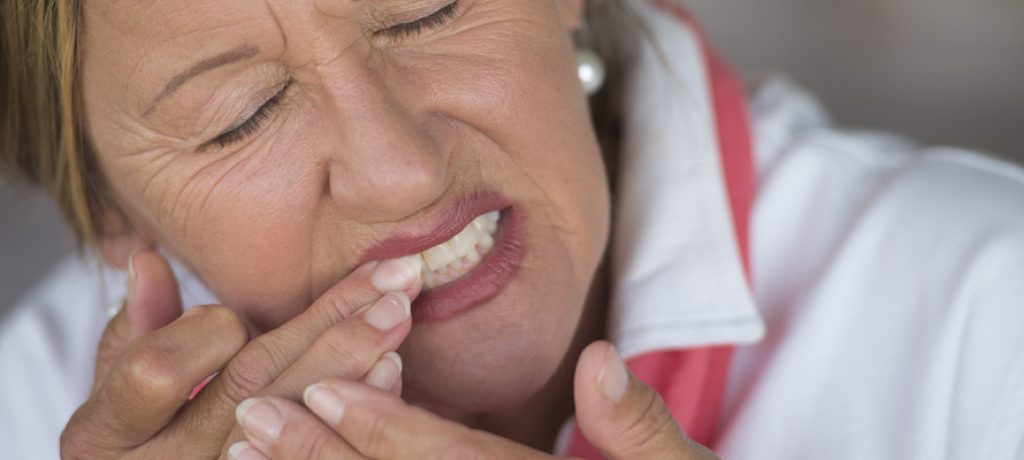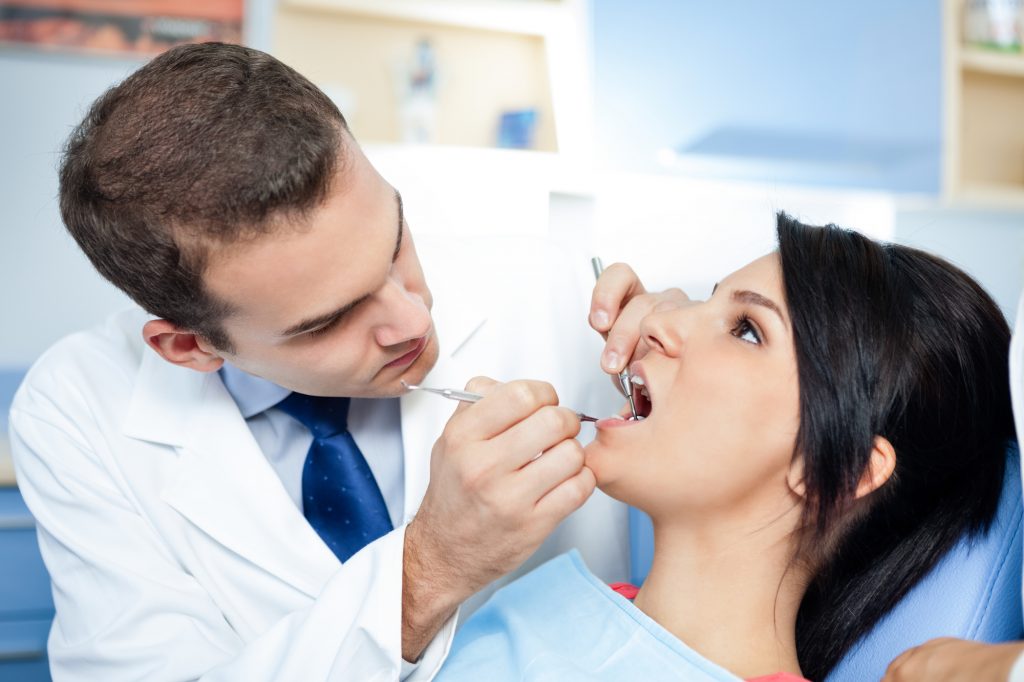Information Library
Start Reading

A chipped or cracked tooth is nothing to ignore.
Aside from the discomfort and pain its sharp edge can cause you, a damaged tooth is an oral health risk. Even a small chip in a tooth’s enamel can let bacteria get to deeper layers and cause infection. Should an infection (abscess) result, you may need a root canal or an extraction.

At Penn Dental Medicine, we know a lot about how to fix a chipped tooth.
Chipped teeth might seem a simple problem to the layperson. But knowledgeable dentists—such as our student dentists, practicing under the supervision of top doctors in the dental profession—know more than one possible treatment option exists. The patient’s situation dictates which one will prove most effective.
The oral health experts at Penn Dental Medicine believe it’s important for patients to know what treatment options are available. So we’ve prepared this overview of five top options for fixing chipped teeth and cracked teeth.
With this knowledge, you’ll better understand why your dentist does or doesn’t recommend a particular way to fix your damaged tooth.
If you’re suffering with a chipped or cracked tooth, you might take some small comfort in knowing you’re not the only one.
During the first year of the COVID-19 pandemic, most dentists had to treat more stress-related oral health conditions, according to data from the American Dental Association (ADA) Health Policy Institute. Among other issues, 63% of dentists reported seeing more chipped teeth, and 63% also reported seeing more cracked teeth.

But stress-associated clenching or grinding of teeth (bruxism) isn’t the only cause of damaged teeth. Cavities, biting something too hard, or a hit to the mouth or face can also leave teeth chipped or cracked. Poor oral hygiene can also increase your teeth’s risk of chips and cracks.
How best to fix a chipped tooth depends upon how much damage the tooth has sustained. An expert, experienced dentist will consider the size of the crack in your tooth, the level of pain you’re feeling, and related issues before deciding how to proceed.
Here are five common, proven options your dentist may consider when treating your chipped or cracked tooth:
1. Re-contouring
If the question is how to fix a minimally chipped tooth, the answer might be tooth re-contouring.
The procedure involves shaving and polishing the crack in your tooth to smooth its surface, removing any jagged edges or sharpness. It’s a simple procedure with low amounts of pain.
2. Dental Bonding
Also known as composite bonding, dental bonding involves applying a conditioning liquid to your cracked tooth, then applying and molding a tooth-colored composite resin. The doctor then uses ultraviolet light to heat and harden the composite, which bonds to the tooth.
This treatment will keep your fixed teeth healthy and intact for approximately ten years.
3. Dental Crowns
Crowns are an effective treatment for chipped or cracked teeth. A crown is a custom fitting that covers and protects your tooth. It can be made of gold or other metal, porcelain, or a combination.
Your dentist will take impressions in dental putty of your damaged tooth and fit you with a temporary crown, installing the permanent crown once it is finished.
4. Root Canal
For badly injured teeth with exposed nerves, your dentist may advise a root canal (endodontic) treatment to avoid having to extract the tooth. Sometimes, dentists will also install crowns after the root canal.
In all cases, your dentist will be careful to disinfect the damaged tooth interior. This procedure helps prevent future infection and ensure the long-term health of your tooth.
5. Dental Implants
When teeth are cracked below the gum line and have sustained severe damage, tooth extraction is necessary. In these cases, your dentist will remove your tooth and install a dental implant with biocompatible screws in its place in your jawbone.
Dental implants require a two-step process. First, your new root implant will be installed. Second, some weeks later, your new crown will be added. This new artificial tooth will have the appearance and function of a normal, natural tooth.
Which of these five ways will best answer the question of how to fix a chipped tooth in your mouth? You need a professional examination from an expert dentist before you’ll know.
At Penn Dental Medicine, we provide comprehensive, patient-centered care. Our providers are student clinicians being trained by University of Pennsylvania School of Dental Medicine dentists. They can determine the best way to treat your chipped or cracked teeth. You’ll again have a healthy smile you’ll be proud to show the world.
To discover more about your oral health needs and how Penn Dental Medicine can meet them, download our free eBook, When a Toothache is the Least of Your Troubles: An Introduction to Oral Medicine.